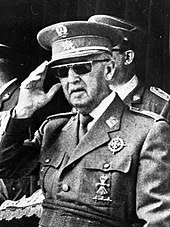The Counter Where Names Go to Die
The Counter Where Names Go to Die
On Ellis Island, 1912, arriving
immigrants await their turns. White-coated men tell them to cough, peer into
their eyes, take their urgent pulses.
At one counter stands a
middle aged, thin-soled man whose job it is to give people their new American
identities. He changes their foreign-sounding names to more American-sounding
ones. He doesn't hear the music in “Delaprovatti,” nor the rhythmic susurration
in “Sipsizimani.”
Paderewski becomes Drew;
Ystremskaya becomes Strong; Wjohowicz becomes Howard.
The immigrants -- so
malleable -- will do anything to become Americans. They accept this indignity
-- which is far less onerous than many they have suffered in the past -- for
the sake of getting permission to begin new lives.
This man does his job
efficiently and rotely. It doesn't matter to him that people have a right to
their names as part of a long blood line stretching back thousands of years. To
him they are just sounds — problematic in most cases — strung together in
chains that can be unlinked and made shorter.
It is of no concern to him,
either, that these names have substantial meanings in other languages. They may
be place names, signifying battlegrounds or vineyards or cairns wherein the bones
of generations lie. These names may mean
“son of so-and so,” signifying lines of succession no
less important than those of Tudors or Hapsburgs: Shlomo Ben Levi —
Solomon son of Levi. Ibrahim Bin Saud —
Abraham from the house of Saud. Genetic history is seated in these names and
yet, with a few pen scratches in a registry, he erases those connections
forever.
One day a woman, one of
several translators at Ellis Island, asks him why he has changed a passenger's
name from Checzowicz to something else.
“The name was too long,” he
says. “Ten letters.”
“But,” she says, “you
didn't change O'Shaughnessy, and it has twelve.”
She waits for an answer but
he stands stock still. Finally, “How does it hurt to shorten a name?” he asks.
“You can dock a dog's tail, but he is still a Rottweiler.”
She turns away and doesn't
speak to him again.
Sometimes, when he is
out in the great throngs of Manhattan, going about his usual errands at a
Chinese shirt laundry, for example, or the fish market, he sees the hostile
looks of immigrants around him. He has been bumped roughly in lines and glared
at from vegetable stalls, and he is not sure why.
He doesn't recognize the
faces, but they know him. He is the man at the counter where they lost their
names. He is the man who stands on the spot where names go to die.




Comments
Post a Comment